Filter by

Power, alliances, and redistribution : the politics of social protection for …
Latin America is considered the most unequal continent in the world. Paradoxically, the development of resource-intensive social systems has done little to change the social imbalance. The author traces this paradox using Argentina as an example, uncovering the underlying conflicts of power and interests, and identifying successful strategies for implementing inclusive policies. As the first st…
- Edition
- -
- ISBN/ISSN
- 9783966650281
- Collation
- 373p
- Series Title
- -
- Call Number
- 306.0982 BOS

The Electoral Consequences of Third Way Welfare State Reforms : Social Democr…
In all advanced Western nations, policy-makers have implemented encompassing welfare state reforms in recent decades breaking with past welfare arrangements. In particular, social democracy engaged in significant policy change under the Third Way paradigm and broke with its traditional reputation on welfare that had built the ties with the core constituency in the 20th century. The Electoral Co…
- Edition
- -
- ISBN/ISSN
- 9789089644503
- Collation
- 280p
- Series Title
- Changing Welfare States
- Call Number
- 306.09409051 ARN
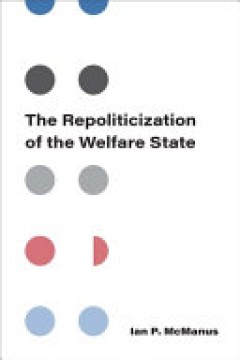
The Repoliticization of the Welfare State
The Repoliticization of the Welfare State grapples with the evolving nature of political conflict over social spending after the Great Recession. While the severity of the economic crisis encouraged strong social spending responses to protect millions of individuals, governments have faced growing pressure to reduce budgets and make deep cuts to the welfare state. Whereas conservative parties h…
- Edition
- 1
- ISBN/ISSN
- 9780472075324
- Collation
- 234p
- Series Title
- -
- Call Number
- 332.1094 MCM

Child Poverty, Evidence and Policy
This book is about the ideas, networks and institutions that shape the development of evidence about child poverty and wellbeing, and the use of such evidence in development policy debates.
- Edition
- -
- ISBN/ISSN
- 9781847424471
- Collation
- -
- Series Title
- Mainstreaming Children in International Development
- Call Number
- 362.7091722 JON c

Sociology in Germany : a history
This open access book traces the development of sociology in Germany from the late 19th century to the present day, providing a concise overview of the main actors, institutional processes, theories, methods, topics and controversies. Throughout the book, the author relates the discipline’s history to its historical, economic, political and cultural contexts. The book begins with sociology in…
- Edition
- -
- ISBN/ISSN
- 9783030718664
- Collation
- -
- Series Title
- -
- Call Number
- 301.0943 MOE s

Studies in global animal law
This open access book contains 13 contributions on global animal law, preceded by an introduction which explains key concepts and methods. Global Animal Law refers to the sum of legal rules and principles (both state-made and non-state-made) governing the interaction between humans and other animals, on a domestic, local, regional, and international level. Global animal law is the response to t…
- Edition
- 1
- ISBN/ISSN
- 9783662607565
- Collation
- -
- Series Title
- -
- Call Number
- 346.046954 ANN s
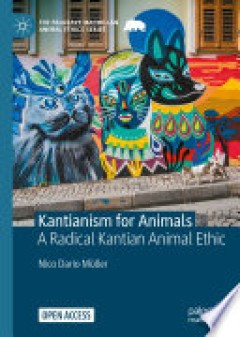
Kantianism for animals : a radical Kantian animal ethic
This open access book revises Kant’s ethical thought in one of its most notorious respects: its exclusion of animals from moral consideration. The book gives readers in animal ethics an accessible introduction to Kant’s views on our duties to others, and his view that we have only ‘indirect’ duties regarding animals. It then investigates how one would have to depart from Kant in order t…
- Edition
- -
- ISBN/ISSN
- 9783031019302
- Collation
- XXI, 245 P
- Series Title
- -
- Call Number
- 170.92 NIC k
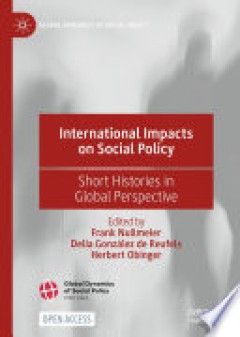
International impacts on social policy : short histories in global perspective
This open access book consists of 39 short essays that exemplify how interactions between inter- and trans-national interdependencies and domestic factors have shaped the dynamics of social policy in various parts of the world at different points in time. Each chapter highlights a specific type of interdependence which has been identified to provide us with a nuanced understanding of specific s…
- Edition
- -
- ISBN/ISSN
- 9783030866457
- Collation
- XXVIII, 542 p
- Series Title
- -
- Call Number
- 361.61 INT i
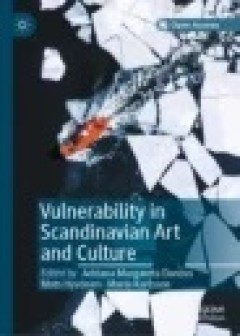
Vulnerability in Scandinavian Art and Culture
In this open access book, seventeen scholars discuss how contemporary Scandinavian art and media have become important arenas to articulate and stage various forms of vulnerability in the Scandinavian welfare states. How do discourses of privilege and vulnerability coexist and interact in Scandinavia? How do the Scandinavian countries respond to vulnerability given increased migration? How is v…
- Edition
- -
- ISBN/ISSN
- 9783030373825
- Collation
- xvii, 324p. : ill.
- Series Title
- -
- Call Number
- 709.48 VUL v
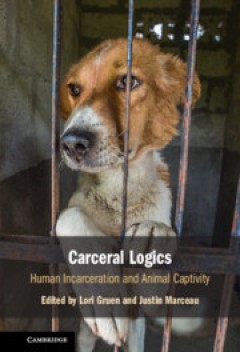
Carceral Logics : Human Incarceration and Animal Captivity
Carceral logics permeate our thinking about humans and nonhumans. We imagine that greater punishment will reduce crime and make society safer. We hope that more convictions and policing for animal crimes will keep animals safe and elevate their social status. The dominant approach to human-animal relations is governed by an unjust imbalance of power that subordinates or ignores the interest non…
- Edition
- -
- ISBN/ISSN
- 9781108919210
- Collation
- xiii, 450 p ; ill
- Series Title
- -
- Call Number
- 344.049 CAR L
 Computer Science, Information & General Works
Computer Science, Information & General Works  Philosophy & Psychology
Philosophy & Psychology  Religion
Religion  Social Sciences
Social Sciences  Language
Language  Pure Science
Pure Science  Applied Sciences
Applied Sciences  Art & Recreation
Art & Recreation  Literature
Literature  History & Geography
History & Geography